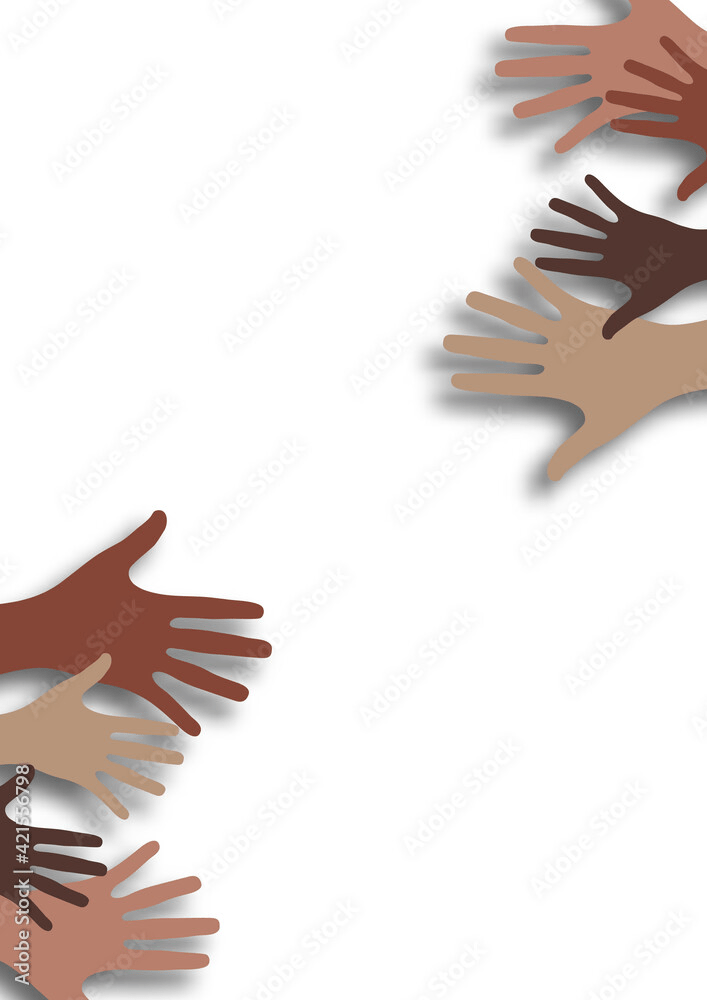

LaVonne Dorsey and Associates
The DEIB Journey Begins…
To secure sustainable Diversity, Equity, Inclusion & Belonging (DEIB) outcomes, organizations must integrate DEIB values into their values, policies and practices. This begins with leadership showing up as DEIB advocates and role models, ready to invest in a culture rooted in DEIB values.
We built DEIB Culture Works to build cultures of trust, respect and belonging, that attract, foster and retain the effective talent a highly engaged, diverse workforce requires.
It’s a collaborative effort. We partner with leadership throughout the series and after. We’ll assess, co-implement, measure progress, adjust when necessary, and stay accountable to achieving our cultural goals… and keeping them.
Doing this work gives us all a deeper learning and understanding of ourselves, each other, and the DEIB journey we’re all taking together. It leads us toward a more inclusive, collaborative environment and the realizations that we have more in common with each other than not.

DEIB Culture Works
After a thorough DEIB organizational assessment process, we use the data we gather to ensure that our workshops specifically address your organizational needs.
DEIB Culture Works engagement workshops are grounded in personal and professional development. It is not a one and done training. It’s about our ongoing personal and professional development - how we create a culture of belonging where we can all contribute as our authentic selves.
The first step is the organizations culture assessment building a more diversified, equitable, inclusive organization with strategic initiatives that represent the people and company's mission serves, requires an attainable, sustainable, implementable and measurable strategy based on gathered data that accurately reflects the current state of organization. To ensure an equitable outcome, the assessment process must be grounded to a specific cornerstone.
Experience suggests that the foundational metric to anchor this assessment process is true equality: To achieve diversity, equity, inclusion and belonging we must invite and welcome all voices and remove the barriers that keep people from being equal… in status, rights, and opportunities.After our internal review of the data captured in the assessment process (survey, focus groups, interviews), we’ll determine the themes that emerged from the data, and then compare/augment our findings with the data you’ve acquired from past surveys. We’ll then use the data to create a report emphasizing strategic recommendations and opportunities, while concurrently using our findings to adapt the content for the skill building workshops to more specifically meet the organizations needs.
It begins with rolling out workshop modules every 3-4 weeks, utilizing an interactive group/cohort model. Each module comes with pre-work preparation that may include short articles, videos, reflection, meeting with your assigned learning partner, practicing a tool, and/or a short exercise.
During the highly interactive workshops, we constantly tap into the wisdom in the “room”, to learning from each others’ experiences as they surface. Every module includes group dialogue based on the exchange of perspectives and stories of the participants.

- Module overall topics may include:
- Setting the Foundation: DEIB Pathways to Mission & Culture of Trust, Respect, and Belonging
- Building Awareness: Establishing Common Understanding & Language Around DEIB Concepts & Influences.
- Jumping In with Good Intentions: The Impact of Implicit Bias, Stereotypes & Micro-aggressions.
- Building a DEIB Toolkit: Identifying Behaviors and Practices for Inclusion and Accessibility.
- Staying the journey with empathy, humility and courage; Addressing polarities, next level commitments.
To learn more about the process, reach out to us for a complimentary consult.

Why White Work?
When we make decisions about things, we try to do what’s right according to how we, as individuals, see things. And a lot of the time we may decide what we want to do, but we really struggle with how to get it done. Especially when it’s about something that’s hard to talk about, like anti-oppression and racism... because we don’t know enough about it.
When we learn more about anti-oppression: like where and when it started, how to talk about it and even how to do something about it, the topic gets more approachable. And we become aware that as White people, all of our lives we’ve been taught and conditioned to believe that we’re different from non-whites. That we’re better… which often leads to feelings of guilt and shame. But we also learn that every White person is not responsible for Systemic Oppression, White Supremacy is.
We’ll recognize that there are two kinds of White people - those who want to hold onto their privilege and those who don’t. And for those who don’t, there's an opportunity to do some good. That’s what White Work is all about - it offers a way to use our privilege for good. It’s a way to level the playing field at work and in the world… while still feeling good about being who you are.
— Joel Kampf, Associate at LD&A and Principal at The Inclusive Leadership Project
Copyright 2025. LaVonne Dorsey | LaVonne Dorsey & Associates



